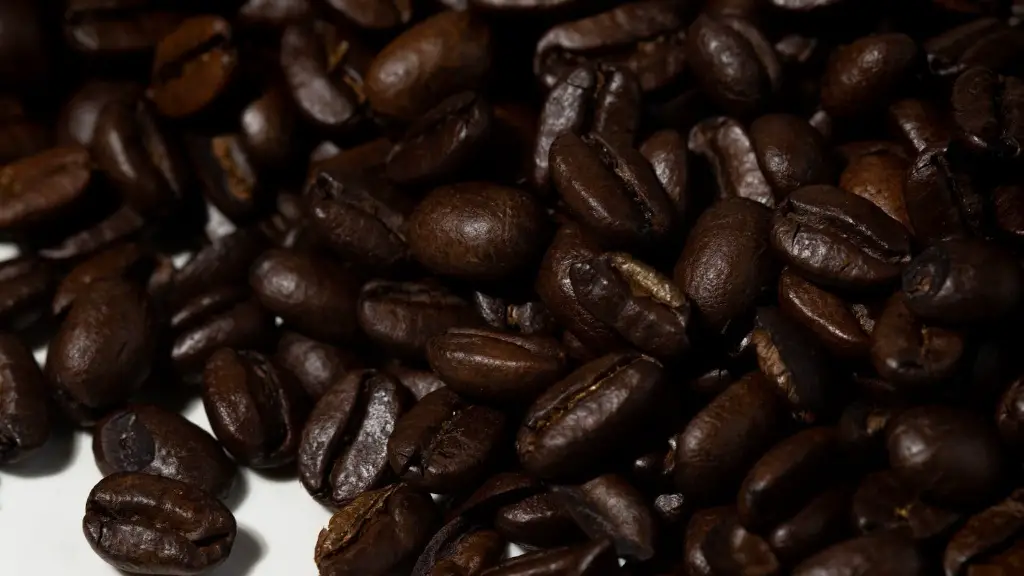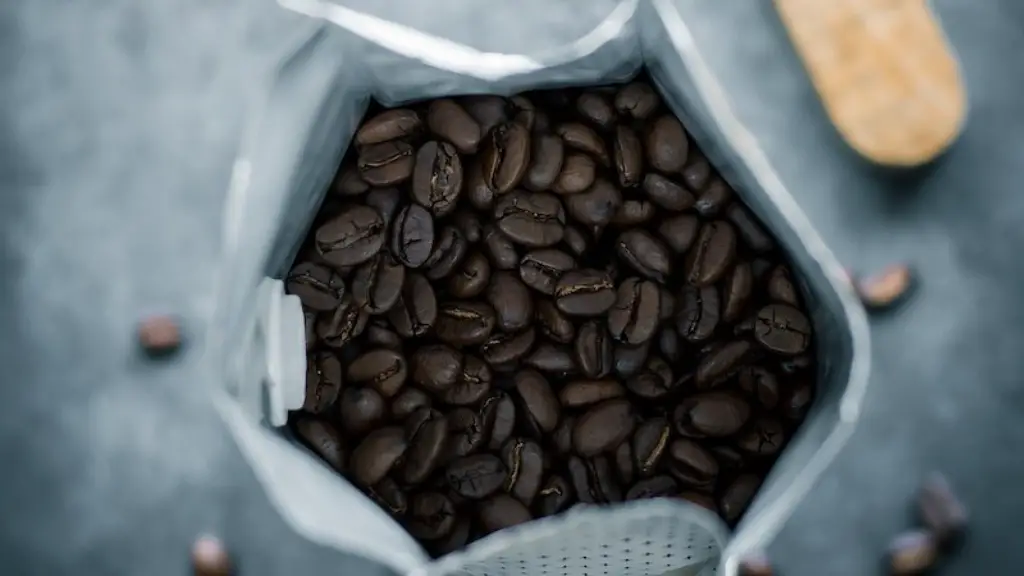Many people enjoy drinking coffee, especially during the morning hours, when it is most effective at boosting energy levels. But what if you suffer from chronic pain, inflammation or arthritis and take diclofenac, a non-steroidal anti-inflammatory drug (NSAID) prescribed to treat those conditions? Can you safely enjoy a cup of coffee with diclofenac or bring to the equation other risks?
The simple answer is yes – you can drink coffee with diclofenac. However, the key is understanding the potential negative effect from drinking coffee when taking certain medications. Studies have found that caffeine has the potential to cause an increased risk of gastrointestinal bleeding, as well as possible liver problems and increased heart rate when taken in combination with anti-inflammatories, such as diclofenac. This drug is known to have interactions with caffeine, the main component of coffee, but the degree of interaction is not known.
Yet, it does not mean drinking coffee with diclofenac cannot be done safely – many doctors confirm, when one is taking diclofenac, it is unlikely that drinking coffee in moderate amounts will result in any serious risks. Moderate amounts of coffee means two or three cups per day, as drinking more than that comes with its own risks of addiction, dehydration, and insomnia.
It is essential to consider the possible adverse side effects and how they affect your body. A word of caution before drinking coffee when taking diclofenac; always consult a qualified healthcare practitioner to ensure and measure if drinking coffee and taking the drug is safe for you. It is a common misconception that drinking coffee and taking drugs do not mix but as long as you keep your consumption moderate, there are no major risks for most people.
Additionally, it is important to advise your doctor of your consumption of coffee. Many people taking medications forget to mention it to the doctor but it is important they know what you intake throughout the day and if needed, adjust your dosage according to how many cups of coffee you are drinking. That way, the doctor will be able to answer questions regarding drinking coffee with diclofenac, and if there is risk or not.
When considering the consumption of coffee with diclofenac, it is important to not just consider the risks associated but also any potential benefits coffee may bring. According to a recent study by the American Diabetes Association, drinking coffee was found to reduce the risk of type 2 diabetes by up to 30%. Coffee has also been proven to reduce the risk of certain cancers, heart disease, stroke, and even depression. In conclusion, moderate consumption of coffee with diclofenac is generally safe for most people, but always check with you doctor for advice to make sure drinking coffee is not counter-productive for your current treatment.
The affect of caffeine on your body when taking diclofenac
Caffeine, like many stimulants, can act as a natural pain reliever. But, when diclofenac is taken with it, the effects can exceed its therapeutic effects and negatively affect the body. It can increase your heart rate and blood pressure, as well as make it difficult to concentrate. Drinking coffee while taking diclofenac can also increase the risk of stomach upset and gastrointestinal bleeding, which can also be a risk factor if combining with other drugs prescribed for gastrointestinal conditions.
To avoid this, it is best to reduce your intake of caffeinated beverages when taking diclofenac, as well as any other medication prescribed for pain relief. If you do drink coffee when taking the drug, it is wise to limit your intake to no more than two or three cups per day. Drinking large amounts of coffee with any medications can prove to be more of a hindrance than a help.
Other potential risks associated with taking diclofenac and drinking coffee
In addition to the risks of caffeine, drinking coffee with diclofenac can disrupt how the drug is absorbed by your body. This means the diclofenac might not be as effective and could result in drug resistance. Also, the caffeine in coffee has diuretic effects, meaning you will be passing more water through your body than necessary. This can be counter-productive when taking diclofenac, as fluids are often important for its effectiveness.
In some cases, people report an increase in anxiety when drinking coffee with diclofenac. As the drug is already known to have a calming effect, adding coffee to the equation can overstimulate the body and cause anxiety. If this is the case, it is advised to reduce the amount of coffee consumed and if necessary, switch to decaffeinated coffee.
Alternatives to drinking coffee when taking diclofenac
There are many alternatives to caffeine that can still give you that extra energy kick in the morning. Some of these include green tea, which still contains caffeine but much less than coffee and is full of antioxidants that can reduce inflammation and help with muscle recovery. Other alternatives include adding vitamin B12 and iron to your diet, as well as taking natural remedies such as ginseng, tumeric, and even gingko for improved brain function.
If you are not a fan of these alternatives, another option is to experiment with different kinds of coffee, like decaffeinated coffee or coffee with reduced acidity. These products still contain coffee but are much gentler on the body when taken with diclofenac. Remember to always get the approval of your healthcare practitioner before making any drastic changes to your diet or lifestyle.
Conclusion
Overall, drinking coffee with diclofenac can be done in moderation and with the approval of a qualified healthcare practitioner. Ensure you understand the possible risks and benefits of this combination, as well as any drug interactions that could affect your body before drinking coffee when taking diclofenac or any other medication. If necessary, experiment with decaffeinated alternatives or simply consume green tea as an alternative energy source.
Stress relief and diclofenac
It is a well-known fact that emotional and psychological stress affects the body. In many cases, physical pain can be caused by psychological stress, but it can also worsen pre-existing pain, including that span from diclofenac taken for chronic joint pain. It is, therefore, essential to address psychological stress and reduce the underlying cause of physical pain.
Studies have found that relaxation techniques like yoga and breathing exercises can be helpful in managing stress and the accompanying physical pain. Additionally, cognitive-behavioral techniques like mindfulness and positive thinking can be just as effective in managing pain. It is also possible to take a ‘holistic’ approach, incorporating several psychological and physical techniques together, to better manage pain.
The best way to minimize the effects of stress on pre-existing pain is to actively manage stress levels, both digitally and physically. Cut down the amount of time spent on electronic devices and switch off from social media for a period of time. Spend quality time away from screens and engage in activities that can help bring about balance, like going for a walk outside, reading a book, or listening to your favorite music.
What other people think
Most people are aware of the risks of drinking coffee with diclofenac, however, opinions on the matter are varied. To get an overview, some opinions from various sources were considered.
According to a researcher from the Centre for Pain Research at the University of Adelaide, Australia, the risks of drinking coffee with diclofenac are relatively low if it is done in moderation. “The risks associated with drinking coffee while taking medications such as NSAIDs is low if you keep your intake to a minimum,” said the researcher.
Other people think that any amount of coffee should be avoided when taking diclofenac. According to personal experiences, people who have had any sort of surgery should not drink coffee when taking diclofenac as it increases the risk of perioperative bleeding. “I had knee surgery and avoided any sort of caffeine for the first month until I was fully recovered,” said an individual who was prescribed diclofenac.
Additionally, some people are more cautious, exercising caution whenever they take NSAIDs. As such, they would not recommend drinking coffee while taking any kind of medication as it can interfere with how the body metabolizes it. “Whenever I take any medication I always make sure I avoid caffeine in any form,” said another individual.
A personal opinion
All in all, it is generally safe to drink coffee with diclofenac when it is consumed in moderation; however, it is always advisable to get the advice of a healthcare practitioner first.
Personally, I believe that as long as you monitor your intake, caffeinated beverages can be safely enjoyed when taking diclofenac. I always make sure my coffee intake is no more than two or three cups per day, as this will minimize any potential risks.
It is also important to take other measures to reduce the effects of stress and pain, such as using relaxation techniques, breathing exercises, and engaging in activities that help to bring balance. These have proven to be incredibly effective in managing the physical and psychological effects of taking diclofenac.
At the end of the day, it is important to ensure there is an element of caution when drinking caffeinated or sugary beverages while taking diclofenac, as these can interfere with how the body processes the drug.





